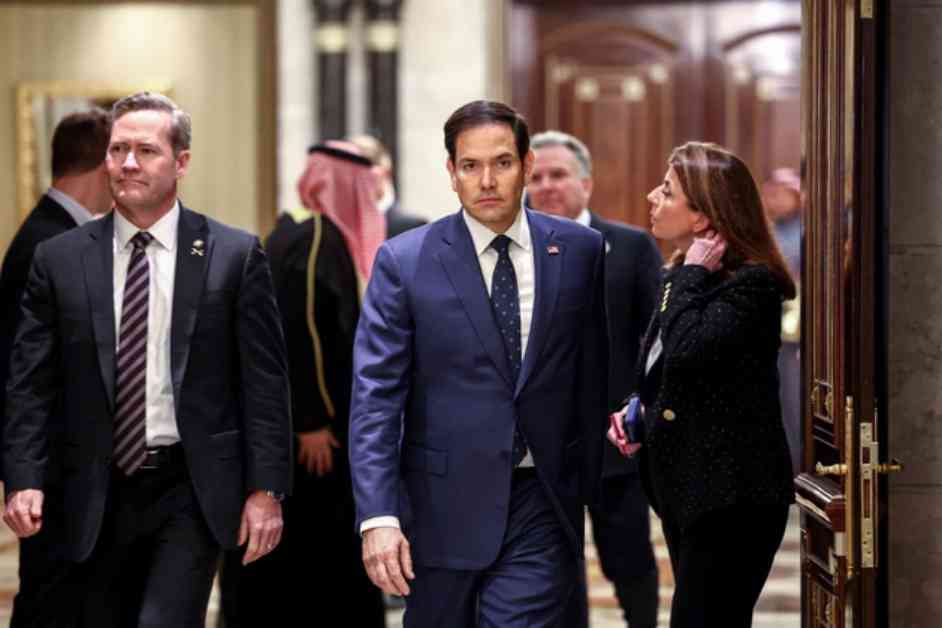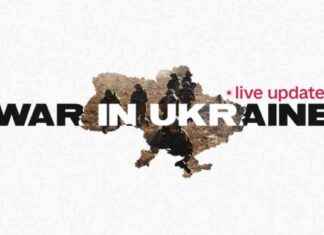US Secretary of State Marco Rubio embarked on a crucial diplomatic mission from Miami to Jeddah, Saudi Arabia, to engage in peace talks with Ukraine. This initiative comes at a pivotal moment as the White House deliberates resuming military aid to Kyiv. Accompanied by special envoy Steve Witkoff and National Security Adviser Mike Waltz, Rubio aims to advance President Biden’s objective of ending the Russia-Ukraine conflict during his three-day visit to Jeddah.
During these talks, Rubio will delve into discussions on reinstating military aid and the exchange of battlefield intelligence, key factors that were temporarily withheld by the previous administration. This decision not only jeopardized the safety of Ukrainian citizens and soldiers but also complicated the path to peace negotiations. With tensions running high, the outcome of these deliberations holds significant implications for the future of the region.
President Volodomyr Zelensky, a pivotal figure in these discussions, is set to participate in separate peace talks with the Saudi crown prince. Meanwhile, his chief adviser Andrii Yermak, Foreign Minister Andriy Sybiha, and Defense Minister Rustem Umerov will engage with the US delegation led by Rubio. While President Donald Trump will not be in attendance, his administration’s policies and decisions continue to influence the course of these critical conversations.
Expert Insights on Resuming Military Aid
Keith Kellogg, the US special envoy on Russia and Ukraine, emphasized the importance of Zelensky signing a long-debated minerals deal before the resumption of assistance. This deal, which sparked a heated exchange between the two presidents during a recent state visit, holds the key to unlocking crucial support for Ukraine. Kellogg’s remarks shed light on the intricate dynamics at play behind the scenes of these high-stakes negotiations.
Amidst escalating tensions and conflicting perspectives, Rubio’s longstanding commitment to countering Russian influence adds a personal dimension to the discussions. Coming from a family with a deep-rooted opposition to Soviet expansionism, Rubio’s position reflects a broader narrative of resilience against authoritarian regimes. His unease during a contentious White House meeting underscores the gravity of the situation and the complexities of international diplomacy.
Challenges and Opportunities Ahead
As the talks unfold, Trump’s skepticism regarding Ukraine’s commitment to peace looms large. Despite assertions of progress, lingering doubts persist regarding Ukraine’s intentions and readiness to engage constructively. The delicate balance between diplomatic maneuvers and strategic interests underscores the multifaceted nature of these negotiations.
Rubio’s upcoming meetings with Crown Prince Mohammed bin Salman and discussions on Saudi Arabia’s recognition of Israel add another layer of complexity to the diplomatic agenda. The interplay between regional alliances, global partnerships, and geopolitical considerations underscores the intricate web of relationships that shape international affairs. Rubio’s role as a key intermediary in these discussions underscores the pivotal role of diplomacy in navigating complex geopolitical landscapes.
In the broader context of international relations, the Group of Seven foreign ministers’ meeting in Canada serves as a backdrop to the evolving dynamics between nations. Against the backdrop of trade disputes and political tensions, the quest for common ground and shared objectives remains paramount. Rubio’s engagement on multiple fronts underscores the interconnectedness of global challenges and the imperative of collaborative efforts in fostering peace and stability.
As the world watches with bated breath, the outcomes of these discussions hold the promise of a more secure and stable future for Ukraine and the broader region. The stakes are high, the challenges are complex, but the commitment to dialogue and diplomacy remains unwavering. In the coming days, as Rubio navigates the corridors of power and engages in high-stakes negotiations, the hopes of millions rest on the prospect of a peaceful resolution to longstanding conflicts and the dawn of a new era of stability and cooperation.

















